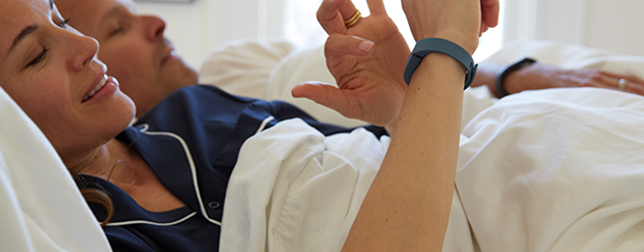The healthcare industry is evolving rapidly, and while it’s been impacted by some of the technology-driven change, it hasn’t experienced it to the extent that other industries have. However, that is going to change with the emergence of health sensors.
Read more Sweat-Based Wearable Sensor May Soon Replace Blood Tests
The sensor revolution is part of the so-called Internet of Things (IoT), which has been defined as the network of devices or other items embedded with software, sensors, and connectivity that enables them to exchange meaningful data accurately and quickly to glean important information and trends. IoT is most promising in healthcare, where it is already being applied to enhance care quality, access, and costs.
Leading-edge organizations are using these technologies in both outpatient and inpatient environments to solve operational and clinical problems. Combined with radio frequency identification (RFID) technologies, IoT can help hospitals better manage inventories, demand, assets, and throughput, as well as perceiving better integration of services. IoT can present ways to better monitor vital signs, manage medical device interoperability, infusions, surgeries, and medication administration.
The sensor revolution impacts the outpatient care as well. Sensors promise the same operational benefits for clinics as hospitals enjoy. As the technology for collecting, transmitting, and analyzing data continues to evolve, we will certainly see more creative sensor-driven applications in healthcare spanning from hospital to clinic to the patient’s home and workplace.
How Sensors Are Helping People, Patients and Doctors
In healthcare, Apple’s HealthKit offers enormous value for various reasons. It can collect data from an array of apps or connected devices, like a glucose monitor or blood pressure cuff, as well as consumer-oriented fitness devices like the Apple Watch. It also offers the ability to automate the recording of medical metrics. If a patient/consumer is using connected devices, this helps to ensure the accuracy of the data because it goes straight from the device to the associated app on their iPhone and then into HealthKit.
Read more This Tiny Tooth Sensor Could Track Your Diet and Health
Scientists from Tufts University have developed tiny sensors that attach to your teeth, and monitor your diet and health in real time.
Many clinicians and patients use home blood pressure monitors to help manage high blood pressure, helping with everything from medication titration to supporting lifestyle modification.
Fitbit Aria is the latest smart gadget of the Fitbit-family. The smart scale tracks your weight and body fat percentage and uploads the information to a cloud-based account over your home Wi-Fi network.
Muse headband is a brain sensing headband that helps you get the most out of your meditation practice by giving you real time biofeedback of what is going on in your mind.
The much-anticipated sensor revolution in healthcare is underway. The pace of change in this area will almost certainly experience rapid change as new technologies and use-cases continue to emerge in order to address the need for more high-quality, accessible, affordable, and patient-centric care.













